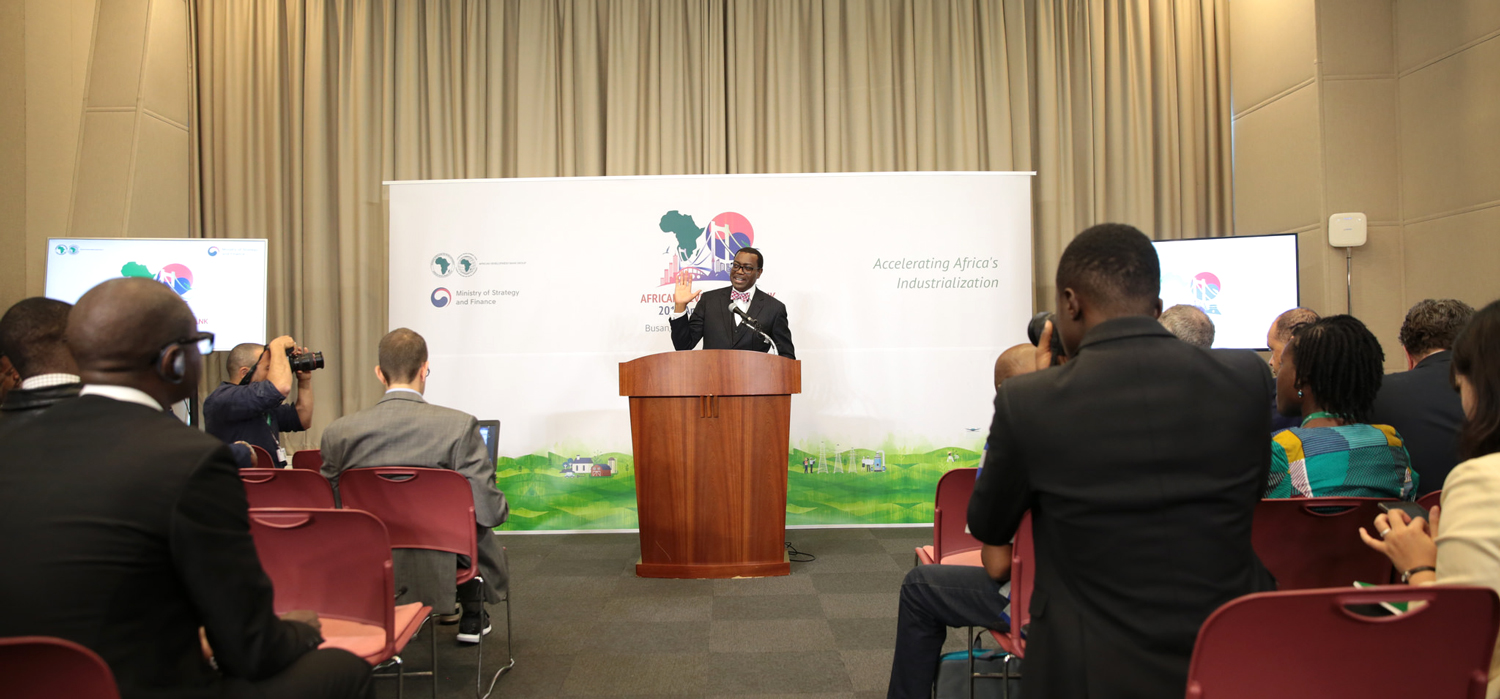
Nigeria’s industrial value addition fell 41 percent between 2012 and this year, according to the African Development Bank (AfDB).
Akinwumi Adesina, the President, AfDB disclosed this in a keynote address delivered at the opening ceremony of the 2018 Annual Meeting of the lender at the Busan Exhibition and Convention Centre, South Korea, on Wednesday.
Adesina said the African continent lost a total of $72 billion between 2012 and so far this year with Nigeria, South Africa, Egypt and Algeria accounting for most of the drop in value added through industrial production.
“Between 2012 and 2018, Africa’s industrial value added declined from $702bn to $630bn, a loss of $72bn. Among countries with the largest industrial output, industrial value added dropped sharply by 41 percent in Nigeria, 26 percent in South Africa, 64 percent in Egypt and 67 percent in Algeria,” Adewunmi said.
He however added that some countries are doing well like Morocco whose industrial output expanded in the period by 16 percent, as it became the hub for global aeronautical companies. This is ditto for Ethiopia.
“Ethiopia witnessed a fivefold increase in its industrial value added, driven by its heavy investments in industrial parks, special economic zones, and strategic partnerships with Chinese companies for its leather industry, and with global textile and garment companies.”
The AfDB boss said the loss of industrial production value was responsible for massive unemployment on the continent, adding that the bank planned to invest over $35 billion in the next 10 years in a bid to reverse the trend of de-industrialisation of the region.
He therefore urged African countries to build global competitiveness, highly skilled labour and prepare the youth for future challenges of modern business and scientific endeavours.
According to information provided by the AfDB, the Government of South Korea announced a $5bn bilateral financial assistance package for Africa at the conclusion of the ministerial roundtable of the Korea-Africa Economic Cooperation.
The financial assistance package will be delivered over two years through partnerships with various development agencies, including but not limited to the AfDB.
Specifically, the Korean government has committed to assist the African nations to achieve rapid industrialisation by facilitating the growth of smart infrastructure in the continent.
The country is also committed to facilitating development financing, knowledge sharing programmes and private sector partnerships to boost industrialisation in Africa.
Yeon Kim, Korea’s deputy prime minister, said that in spite of strong evidence of Africa’s flourishing growth and imminent huge potentials for industrial revolution, it had not attained the height of development due to several factors.
Kim, who doubles as the country’s minister of strategy and finance, said Africa needed unique conditions, tailored strategies and a new approach to technology and favourable structural factors to drive its transformation.
He explained that the continent also needed inclusive growth and fiscal inclusion to development and general growth, especially people-driven development. The minister assured Africa that it would provide support for innovative solutions, including customised drones to help African countries develop faster.
The African Union Chairperson, President Paul Kegame of Rwanda, in a message, said Africa’s trend of exporting raw and unprocessed materials should be changed through political commitment, effective public service and committed private sector development.
Kegame, who was represented by a top official of Rwanda, Edward Ngerika, thanked Korea for hosting the programmes, and added that “Korea is a strong and reliable partner with Africa”.







